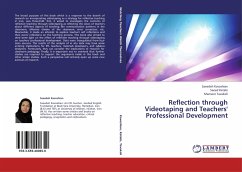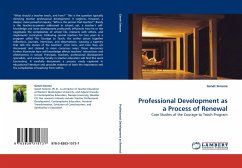The broad purpose of this book which is a response to the dearth of research on incorporating videotaping as a strategy for reflective teaching in Iran, was three-fold: first, it aimed to investigate the contents of reflective teaching through videotaping as reflecting the views of teachers about different aspects of teaching like communication patterns in the classroom, affective climate of the classroom, error correction, etc. Meanwhile, it made an attempt to explore teachers' self reflections and their peers' reflections on the teaching process. This book also strived to shed some light on the effect of reflective teaching through videotaping on teachers' professional development. Data were triangulated from four main sources. The results of the analysis of in situ data may have some enticing implications for EFL teachers, materials developers, and syllabus designers. Particularly, they can consider the implications of research for classroom pedagogy. Finally, it is important not to overlook that further studies are required to support the arguments made in this book and other similar studies. Such a perspective will certainly open up some new avenues of research.
Hinweis: Dieser Artikel kann nur an eine deutsche Lieferadresse ausgeliefert werden.
Hinweis: Dieser Artikel kann nur an eine deutsche Lieferadresse ausgeliefert werden.








